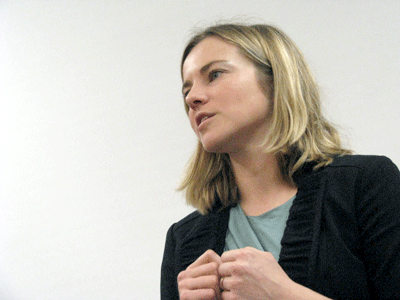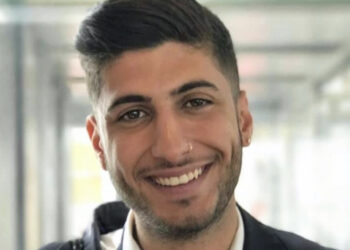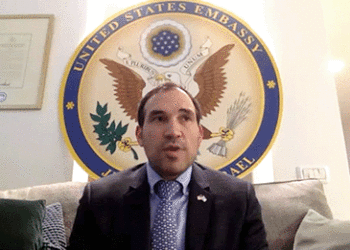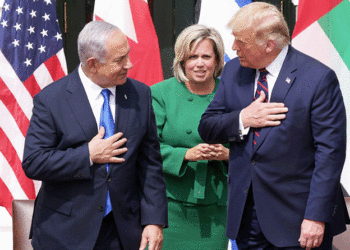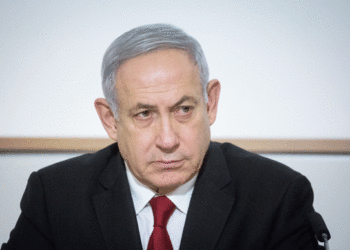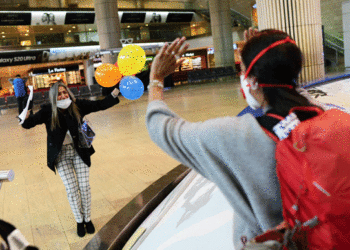By MORDECAI SPECKTOR
Natasha Mozgovaya, Washington bureau chief for the Israeli daily newspaper Haaretz, visited St. Paul on April 13, and spoke about Israel and her two-year sojourn in the States.
The veteran 31-year-old journalist, who has written for both Russian- and Hebrew-language publications in Israel, visited under the auspices of the United Jewish Fund and Council of St. Paul (UJFC) and the St. Paul JCC.
During her day in Minnesota’s capital, Mozgovaya spoke at breakfast and lunch gatherings at the UJFC offices; her evening talk at St. Paul JCC was titled “Breaking News, Breaking Barriers.”
Following her lunch event — in which she presented a Powerpoint slideshow called “Faces of Israel” that highlighted the ethnic diversity of the Jewish state —Â Mozgovaya talked with the American Jewish World.
During her presentation, she talked about the various pressing issues facing the Israeli government and society — and, unlike most reporters in the U.S., freely offered her opinions on topical questions. Those attending the talk at the UJFC offices had questions all related to Israel; no one seemed curious about what the Israeli journalist — who was born in the former Soviet Union, and came to Israel with her family at the age of 11 — thought regarding her two years covering American politics.
Mozgovaya, who also wrote for the Israeli daily Yediot Achronot for eight years, has visited St. Paul previously. She covered the 2008 Republican National Convention. “I got this assignment [as the chief U.S. correspondent for Haaretz] a very short time before the convention,” she said.
Based in suburban Washington, D.C., Mozgovaya, who is married and has two young children, mentioned that, from an Israeli viewpoint, “American politics seems so fun, because in some aspects it’s like a carnival.” She had in mind the colorful Tea Party rallies, where some participants appear in colonial era garb, evoking the nation’s revolutionary fervor.
Her journalistic colleagues in Israel contend with a political environment that is often “so bitter and so intolerant”; but Mozgovaya has learned that harsh partisan divides are part of the American scene too.
She is particularly troubled by the way some U.S. citizens exercise their First Amendment rights. For example, she traveled to Pulaski, Tenn., to cover the annual Ku Klux Klan parade, and was shocked to see right-wing extremists wearing swastikas and selling anti-Semitic literature.
“Some people posed for me with their ‘heil Hitler’ salute,” she remarked.
“How do you allow this to happen?” she asked, regarding such expressions of racial and religious hatred. “Isn’t it incitement [to violence]?” She mentioned that this kind of thing is illegal in a number of European countries.
She also brought up the example of Pastor Terry Jones in Florida, who recently burned the Koran, which touched off riots in Afghanistan where a number of United Nations workers were murdered.
“When you know 100 percent that people will be killed because of this… where is the balance?” Mozgovaya asked.
After covering the disengagement from Gaza and the Second Lebanon War, Mozgovaya is adjusting to another society and an alien political environment. Her articles occasionally appear in the American Jewish World, which has a syndication agreement with Haaretz.
You can also read the talented journalist’s English-language stories online at: haaretz.com.









